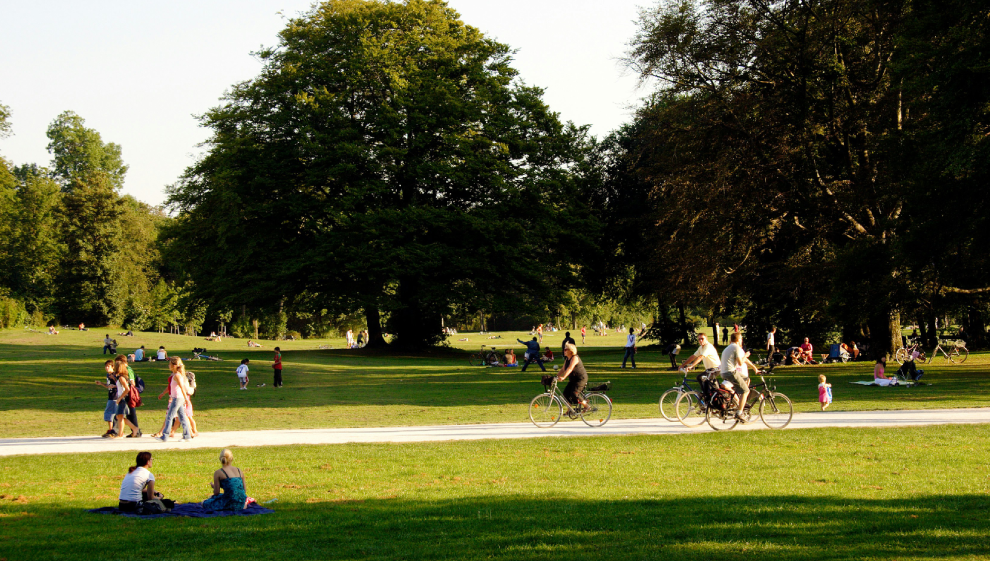The mental health benefits of walking
- Overview
Key takeaways
- Just 10 minutes of walking outside is enough to increase our alertness and mood
- Walking in the sun is proven to elevate our mood even further
- Research suggests that walking in nature can help reduce anxiety and depression
- Walking as part of a group or with a friend can help you feel more connected
- Walking is an accessible form of exercise for those with more serious mental health conditions, where regular movement is an important treatment component
How walking can help our mental health
For many people, walking is an accessible form of exercise that can improve overall health and help reduce a range of mental health symptoms.
It’s also great for our physical health, which plays a vital role in regulating our mood and how we feel mentally.
Walking is proven to help with:

- Overall mood
- Stress
- Fatigue and tiredness
- Self-esteem
- Sleep
- Energy levels
- Weight management
- Stamina and endurance
- Libido and sex drive
- High cholesterol
The science behind it all
Walking is a great way to build confidence and develop the relationship between our physical and mental health.
Physical activity releases endorphins (chemicals that promote happiness) whilst we move. It also reduces levels of stress hormones like cortisol, boosting our ability to relax and unwind.
Being outdoors on a walk also exposes us to natural light, which can further improve our mood Walking also improves mood, tops up our levels of vitamin D, and fosters a sense of accomplishment and control, all of which help improve self-esteem and confidence.
Can walking help with anxiety and depression?
Yes, it can.

Numerous studies indicate a link between walking and reduced anxiety and depression.
Aside from the release of endorphins that promote a sense of ease and calm, exercise gives us a sense of control over how we’re feeling and what we’re doing for our health.
Many people also find walking in nature provides a calming effect on the mind that reduces symptoms of anxiety and depression. While it is never a standalone treatment, a daily walking routine can complement other therapeutic approaches for managing these problems.
How much walking do I need to do?
The best thing about walking is that you can do as much or as little as you want.
Walking to improve your mental health isn’t about times, distances, or how quick you can go. It’s about finding places and routes that make you feel better.
How much you do might depend on a variety of factors, including the weather, time of year, how physically fit you are, and how you’re feeling that day. The important thing is to stick to a regular routine where possible.
How fast should I be going?
Many of us think of exercise as a difficult or vigorous activity that makes us sweat and gets our heartrate up, but exercise doesn’t always mean running at fast speeds or lifting heavy weights.
Low-impact exercise like walking is great for our body (it helps strengthen the muscles around our joints) and our minds. It’s a free and accessible way to get moving that you can do almost anywhere.
The best way to get started
Getting started with walking can be daunting. Whether you’re anxious or unsure what to expect, taking the first step is always the hardest part.
Keep in mind that no matter how far you go, any amount of movement is better than nothing. Walking around the garden means you’ve gone outside and achieved your goal for the day. You can then add to this on your next walk and achieve something even better.
Goal setting is a great way to develop your confidence around exercise. By getting these little wins every day, you’re establishing a reward system and reminding yourself how capable you are of achieving what you set out to do.
Many people ultimately use walking as a solid foundation to build from in other areas of their health and wellbeing.
Do I need any equipment?
The only real piece of equipment you’ll need is a pair of comfortable and supportive shoes. They don’t have to be expensive or new, but they should be comfy and support your heel, arch, and midfoot.
The same rule applies to your clothing—choose items that are appropriate for the weather and allow you to move freely. Again, you don't need to buy the latest high-tech activewear, but you should ensure your clothes are comfortable and suitable for the conditions you’ll be walking in.
Fun apps to make things easier
In today’s digital world, there are thousands of smartphone applications and websites that can help make walking more enjoyable for us all.
From tracking your progress on Strava to counting steps with a digital pedometer, we’ve included some of our favourites below:
Keeping track of your progress
The ‘step counting’ phenomenon and widespread use of smartwatches and fitness apps has made keeping track of your progress easy.
Even charting your progress on a wall chart or roughly counting how many steps you do in a day can help make walking a routine for you. This sense of achievement and reward is just one element of what makes regular exercise so beneficial for our mental health.
Last updated Thursday 23 January 2025
First published on Tuesday 23 April 2024

